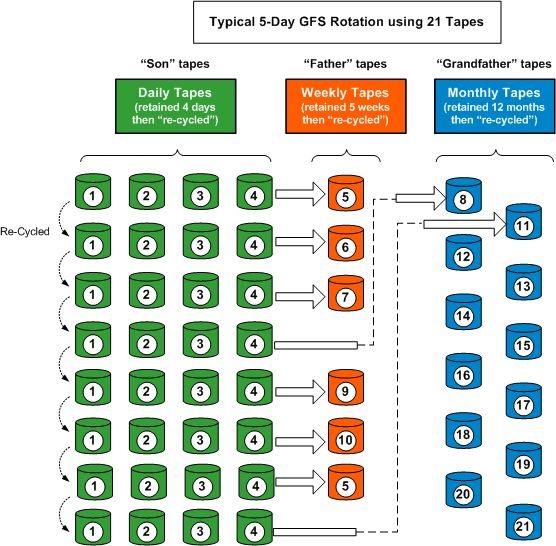

The most commonly used media rotation schedule is the Grandfather-Father-Son (GFS) rotation. This schedule policy uses daily (Son), weekly (Father), and monthly (Grandfather) backup media sets (tapes). GFS rotation schedules allow you to back up your data for an entire year using a minimum of media (tapes). The number of tapes you use for GFS rotations is based on the number of workdays you specify for your backup policy.
The GFS rotation method works as follows:
Note: To avoid confusion, it is important to clearly and properly label your tapes.
Remember, because the daily tapes are used more frequently than the weekly and monthly tapes, you will need to replace them more often.
The following diagram shows an example of how a typical 5-day GFS rotation policy can be implemented to provide you with a safe and reliable method to perform data backups for an entire year while using a minimum amount of backup media:

Note: A five-day GFS rotation policy would require approximately 21 tapes per year, while a seven-day policy would require approximately 23 tapes per year (adding two additional daily tapes). For both of these schedules, the amount of media needed can vary depending upon your specified retention criteria and the quantity of data that you are backing up. Additionally, the amount of media needed in each schedule can also be affected by the use of multistreaming and if you are appending backup sessions to your media.
|
Copyright © 2015 |
|